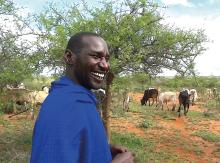Land Library
Welcome to the Land Portal Library. Explore our vast collection of open-access resources (over 74,000) including reports, journal articles, research papers, peer-reviewed publications, legal documents, videos and much more.
/ library resources
Showing items 1 through 9 of 80.Large-scale development projects often overlap forest areas that support the livelihoods of indigenous peoples, threatening in situ conservation strategies for the protection of biological and cultural diversity.
This study was conducted to examine the compatibility between the Sarawak Forest Ordinance and Bidayuh Native Customary Laws in Sarawak and to gather the community membersâ opinions on the compatibility of these laws. This study was carried out using two research methods, viz.
Increased participation of local users in decision-making about forests and gaining benefits from these forests are major goals of the community forestry program in Nepal.
Indigenous Peoples and local communities hold a large share of the world’s land area under customary systems. However, there is a tremendous gap between what is held by communities in practice and what is formally recognised by governments.
The year 2016 marks 15 years since the new wave land reforms became operational in Tanzania. Despite its ambitious goals – encouraging land registration and titling, and empowering women and other vulnerable groups – the results are disillusioning.
SUMMARYThe reform era around the turn of the century in Indonesia has been followed by a revitalization of local claims to political authority and natural resources on the basis of adat and indigeneity.
Full and effective participation of indigenous peoples and local communities, and high accuracy estimates are two current requirements for the purposes of monitoring forests at international level.
Mosaic burning is the deliberate creation of a mosaic of patches representing different fire histories.
Recent research on payments for environmental services (PES) has observed that high transaction costs (TCs) are incurred through the implementation of PES schemes and farmer participation.



